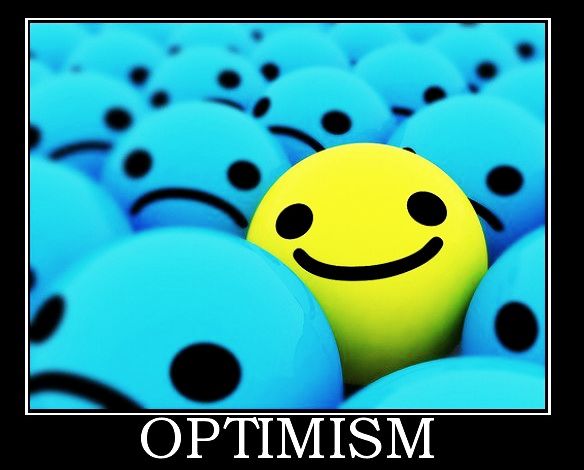Bright Side
I recently had the thought, “I wish I could do that”. I then realized how counterproductive it was for me to think this way. We all have fleeting thoughts of objects or abilities we wished we had; those we cannot avoid, but when these thoughts become more than fleeting, even consuming, that is when we must remember to focus on what we have and can do, rather than on what we cannot.
 Even though the premise of this message seems straight-forward, it is one that is often forgotten. We all wish we had more money; maybe you wish you wish you were taller, or had different color hair. Perhaps you desire more power at your job. We all wish and hope for different possessions and talents, but we cannot let these desires consume and overtake us. Instead, we should be grateful for what we do have and can do. Personally, I mentioned earlier how I wished I could do that; my 4 year old son had just asked me to play catch with him. I knew my poor motor skills would not allow me to do so, so it was at that time I wished I could do that. Thankfully though, that only lasted a minute, as I have not had thought again. . . Until now. But my point is, that if I allowed these thoughts to consume me I’d either go crazy or sink into depression (or both); I think it’s important instead to hone in on what I can do instead.
Even though the premise of this message seems straight-forward, it is one that is often forgotten. We all wish we had more money; maybe you wish you wish you were taller, or had different color hair. Perhaps you desire more power at your job. We all wish and hope for different possessions and talents, but we cannot let these desires consume and overtake us. Instead, we should be grateful for what we do have and can do. Personally, I mentioned earlier how I wished I could do that; my 4 year old son had just asked me to play catch with him. I knew my poor motor skills would not allow me to do so, so it was at that time I wished I could do that. Thankfully though, that only lasted a minute, as I have not had thought again. . . Until now. But my point is, that if I allowed these thoughts to consume me I’d either go crazy or sink into depression (or both); I think it’s important instead to hone in on what I can do instead.
Many people, much smarter than me, postulate that our minds are like basins being filled with water that are our thoughts and emotions. Thus, according to this theory, that Pythagorean Theory we learned back middle school (you remember it, right?), takes up some space in the storage of our minds. Some facts might be hidden deeper in there and tougher to find, like counting to ten in a foreign language, but they’re in there. It just might take some time for you to fish them out. Thus, why fill this precious space with useless thoughts of what you do not have or cannot do?
Yes, at the core this is a piece about optimism; I am simply telling you what you already knew: be optimistic, not pessimistic. But if this message is so simple, why is it so often forgotten? Studies show that optimists succeed more than pessimists. This makes sense when faced with a problem; while a pessimist would fold and surrender early to let it go and deem the problem unsolvable, an optimist would instead find a way to solve it with the tools he/she has. Thus, my last 445 words to you can be boiled down to one straight-forward message: be an optimist, not a pessimist.
Please know that the reason I devoted a whole article to this thought is that it is an important one.
